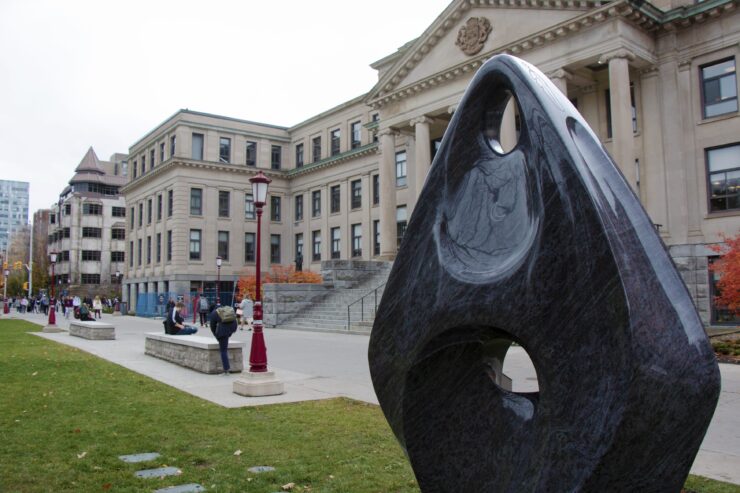EDIC recommendations call for hiring and supporting Black faculty members at the U of O
On Feb. 2, the Association of Professors of the University of Ottawa (APUO) released a list of recommendations for hiring and supporting Black faculty members at the U of O.
The recommendations were released jointly by the APUO and the university’s central administration through the Equity, Diversity, and Inclusion Committee (EDIC).
The EDIC is composed of four members of the APUO and four members of the university’s central administration. The committee “provides an opinion on any contemplated employment equity, diversity, and inclusion measures and procedures affecting the APUO bargaining unit.” Additionally, “it may propose measures and procedures that affect the selection and hiring of members of equity-seeking groups or their working conditions.”
According to the EDIC’s report, “there is an urgent need for the University of Ottawa to focus its attention on hiring and retaining Black faculty members as part of its commitment to fighting anti-Black racism at the university and in the broader community.”
The APUO said in an email to the Fulcrum this remains a priority.
“The Central Administration has on many occasions expressed a desire to fight racism and to improve equity, diversity, and inclusion at our institution.”
The five recommendations are as follows:
- “Alongside the University of Ottawa’s Count Me in Campaign, the University should make the data from the campaign available on the University’s website for full transparency.”
- “When it comes to using the strategy of advertising faculty positions … [the university should] advertise their openings in special issues of Canadian journals that are focusing on topics revolving around Black Studies for their quarter.”
- “Increasing Black faculty is enhanced by student diversity and the implementation of explicit policies and practices aimed at increasing Black faculty … look at ways to make it possible for faculty groups on campus that are based in social identities to have an audience with the Provost, Deans and/or President to express their concerns and or recommendations.”
- “The University of Ottawa should make the necessary funding available to revamp their equity, diversity and inclusion training to include specific vocabulary around Blackness, White supremacy, anti-Black racism and anti-racism.”
- “The University needs to name these incidents (anti-Black incidents that have occurred on the university’s campus in the last year) acts of anti-Black racism and condemn them as such.”
“The University of Ottawa should look at implementing specific positions for Black faculty as a useful first step as it shows a commitment to the voices of Black faculty and staff. It also needs to put diversity and equity policies into actual practice, and increase support for Black faculty on campus.”
The final remarks of the report include the following statement: “The perception that Black faculty get hired and/ or receive tenure because of their racialized status is a harmful anti-Black stereotype that has been aggravated by falsehoods about affirmative action, diversity and inclusion efforts, which posit these initiatives as antithetical to merit-based hiring practices.”
“In reality, Black faculty often lack institutional support and the multicultural groups to which they belong were either not advisory or do not report to the provost or president of their universities.”
Sanni Yaya, vice-president, international and francophonie at the U of O and co-chair of the EDIC, spoke about the importance of the report via a statement from the APUO.
“I cannot emphasise strongly enough that there has been little change as far as ethno-racial diversity in higher education systems in Canada,” he said.
“We are firmly committed to providing an enriching experience for Black faculty and students alike.”
“Given the unique opportunities and inherent challenges in efforts to move the needle on this issue, it’s crucial that we innovate, test and evaluate,” continued Yaya.
In the same statement, Mythili Rajiva, the equity officer for the APUO and co-chair of the EDIC also shared her thoughts.
“It is clear from the APUO’s perspective that the University of Ottawa has some catching up to do when it comes to fostering a more equitable, diverse, and inclusive environment for both students and its employees,” she said.
“Much time has been spent discussing and reflecting how to create a campus community that is anti-racist and welcoming of Black students and faculty.” “It is more than time for us to catch up and implement concrete measures on this point.”
The University of Ottawa’s administration has received these recommendations from the APUO but has yet to comment on if it plans on implementing them for future hiring processes.





